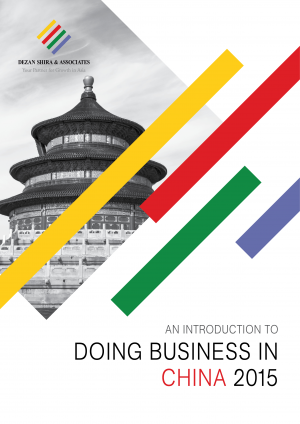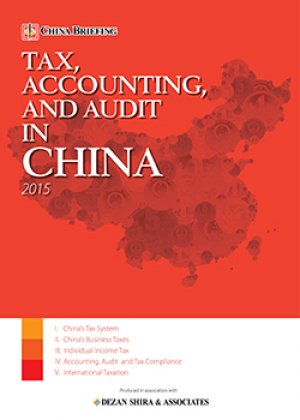China Regulatory Brief: Foreign-invested Projects Management in Zhejiang, Criteria for Qualified High-tech Enterprises
Zhejiang Government Releases Foreign-invested Projects Management Measures
On January 28, the Zhejiang provincial development and reform commission released the “Administrative Measures on the Management of Foreign-invested Projects (Zhefagaiwaizi [2016] No.38),” which took effect on January 31. According to the Measures, foreign-invested projects in Zhejiang province are subject to either approval or filing management, depending on the investment amount and industries involved.
Foreign investors may refer to the National Guidance Catalogue for Foreign Investment Industries (2015) when determining whether they should go through the pre-approval procedures with the local government before the investment is made. For example, foreign investment over US$100 million into restricted industries stipulated by the Catalogue need to be pre-approved by the provincial government. Enterprises that are subject to the approval management are required to prepare and submit an application report, the companies’ financial reports, board resolution and other relevant documents to the government. Foreign-invested projects that are subject to the filing management may complete the filing procedures online.
China Revises the Criteria for Qualified High-tech Enterprises
On January 29, the Chinese government issued the amended “Measures of the Accreditation as High-tech Enterprises (Guokefahuo [2016] No.32),” which is a loosening of the previous 2008 law. To be qualified as a high-tech company, the company needs to be registered for more than one year and its R&D staff should make up 10 percent of a company’s total staff members. Moreover, the company’s expenditure on research and development should exceed a certain percent (e.g., three percent) of its revenue. Meanwhile, at least 60 percent of the R&D expenditure should be used in mainland China. In China, qualified high-tech enterprises are entitled to a slew of tax incentives including a reduced 15 percent corporate income tax (CIT) and staff training reimbursements.
![]() RELATED: Business Advisory Services from Dezan Shira & Associates
RELATED: Business Advisory Services from Dezan Shira & Associates
SAFE Further Liberalizes Foreign Investment in Domestic Capital Market
On February 3, China’s State Administration of Foreign Exchange (SAFE) decided to lift the quota that qualified foreign institutional investors (QFII) are allowed to invest in China’s domestic stock and bond market. Specifically, SAFE now allows QFIIs to obtain investment quotas on a case-by-case basis – previously, a standard US$150 billion quota was granted to qualified foreign investors that had obtained the permit from the China Security Regulatory Commission (CBRC). Furthermore, rather than obtaining the pre-approval from the SAFE, investment within the quota is now only required to be filed with the foreign exchange bureau. The QFII scheme was launched in 2002 to allow licensed foreign investors to invest in the RMB-denominated securities market in China.
China to Launch Individual Income Tax Reform
It is reported that China has finished drafting the individual income tax (IIT) reform plan and is likely to officially launch the reform in the second half of 2016. Experts predicted that more deductions such as children’s education costs and housing & rentals before the tax collection would be allowed after the reform. It is also expected that the tax bureau will further clarify the income items/categories and optimize the tax rate structure. China’s Ministry of Finance unveiled its plan to launch the IIT reform in early 2014. However, the IIT reform, just like many other tax reforms in China, is long delayed due to its complexity and significant influence on taxpayers.
|
Asia Briefing Ltd. is a subsidiary of Dezan Shira & Associates. Dezan Shira is a specialist foreign direct investment practice, providing corporate establishment, business advisory, tax advisory and compliance, accounting, payroll, due diligence and financial review services to multinationals investing in China, Hong Kong, India, Vietnam, Singapore and the rest of ASEAN. For further information, please email china@dezshira.com or visit www.dezshira.com. Stay up to date with the latest business and investment trends in Asia by subscribing to our complimentary update service featuring news, commentary and regulatory insight. |
![]()
 An Introduction to Doing Business in China 2015
An Introduction to Doing Business in China 2015
Doing Business in China 2015 is designed to introduce the fundamentals of investing in China. Compiled by the professionals at Dezan Shira & Associates, this comprehensive guide is ideal not only for businesses looking to enter the Chinese market, but also for companies that already have a presence here and want to keep up-to-date with the most recent and relevant policy changes.
 Tax, Accounting, and Audit in China 2015
Tax, Accounting, and Audit in China 2015
This edition of Tax, Accounting, and Audit in China, updated for 2015, offers a comprehensive overview of the major taxes foreign investors are likely to encounter when establishing or operating a business in China, as well as other tax-relevant obligations. This concise, detailed, yet pragmatic guide is ideal for CFOs, compliance officers and heads of accounting who must navigate the complex tax and accounting landscape in China in order to effectively manage and strategically plan their China operations.
 Selling, Sourcing and E-Commerce in China 2016 (First Edition)
Selling, Sourcing and E-Commerce in China 2016 (First Edition)
This guide, produced in collaboration with the experts at Dezan Shira & Associates, provides a comprehensive analysis of all these aspects of commerce in China. It discusses how foreign companies can best go about sourcing products from China; how foreign retailers can set up operations on the ground to sell directly to the country’s massive consumer class; and finally details how foreign enterprises can access China’s lucrative yet ostensibly complex e-commerce market.
- Previous Article China Regulatory Brief: Annual Inspection of Foreign Law Firms, 144-hour Visa-free Entry Scheme
- Next Article Making the Cut: New Measures to Qualify as a High-tech Enterprise in China










